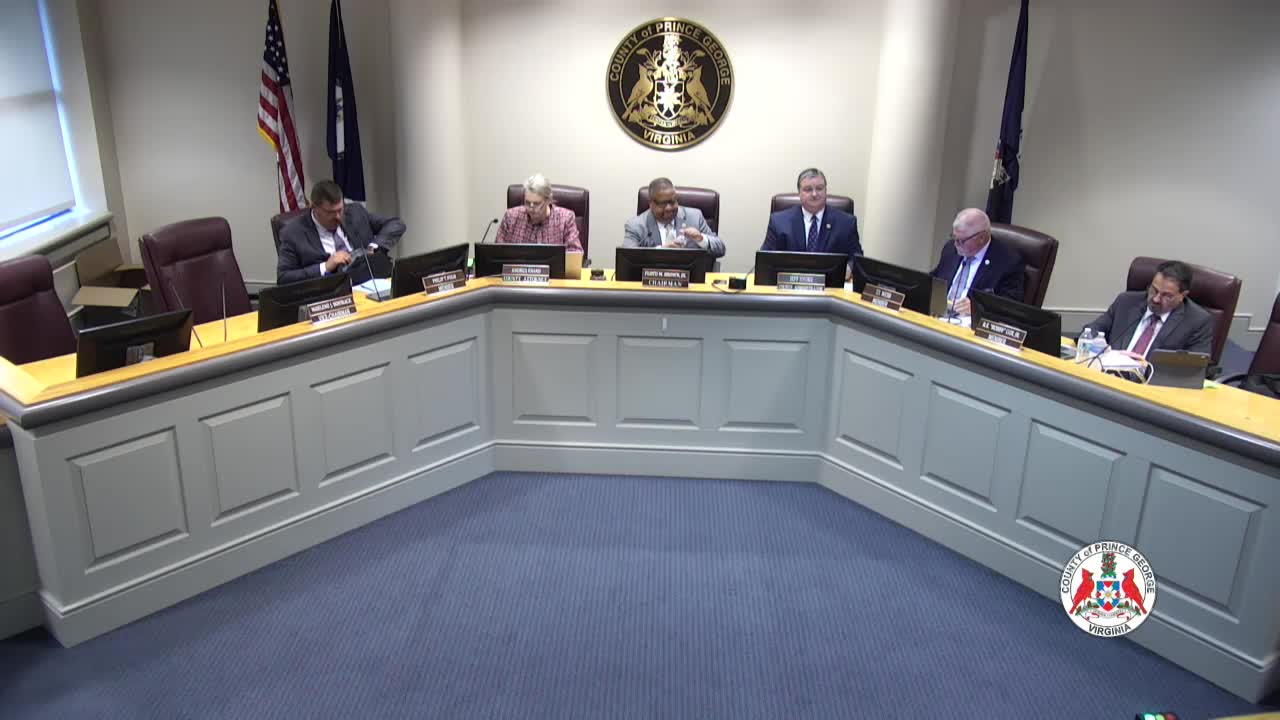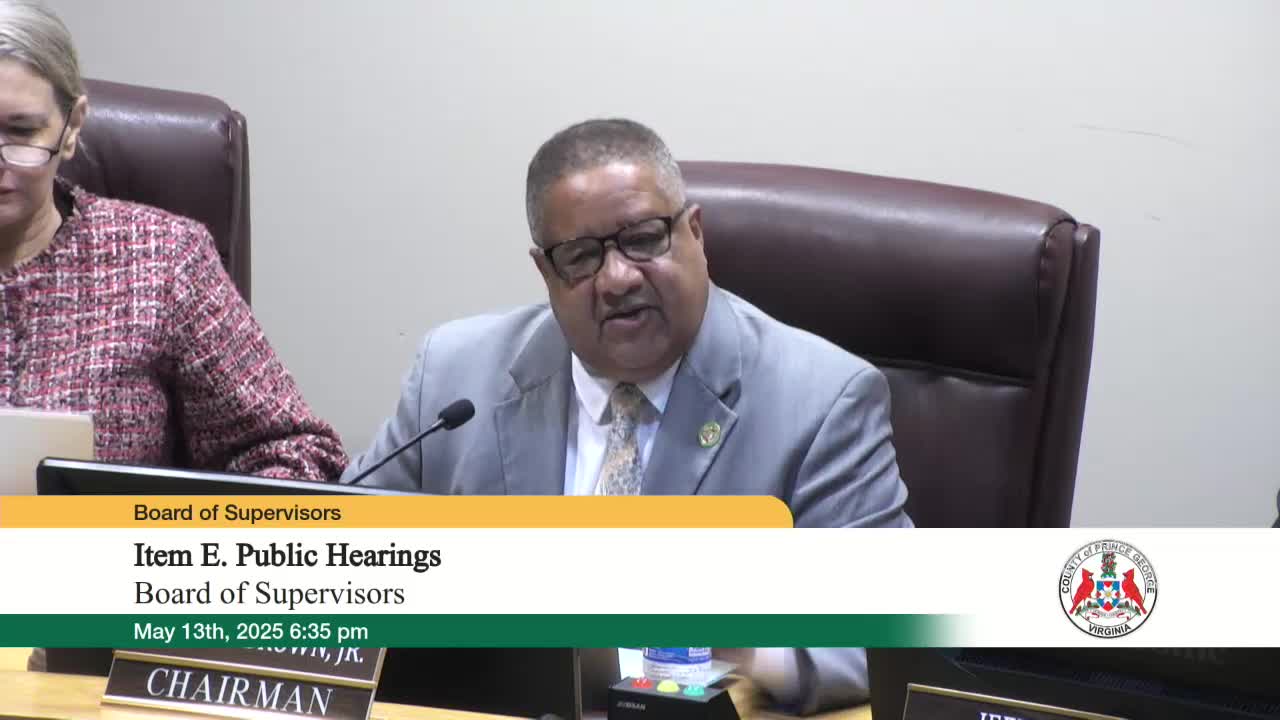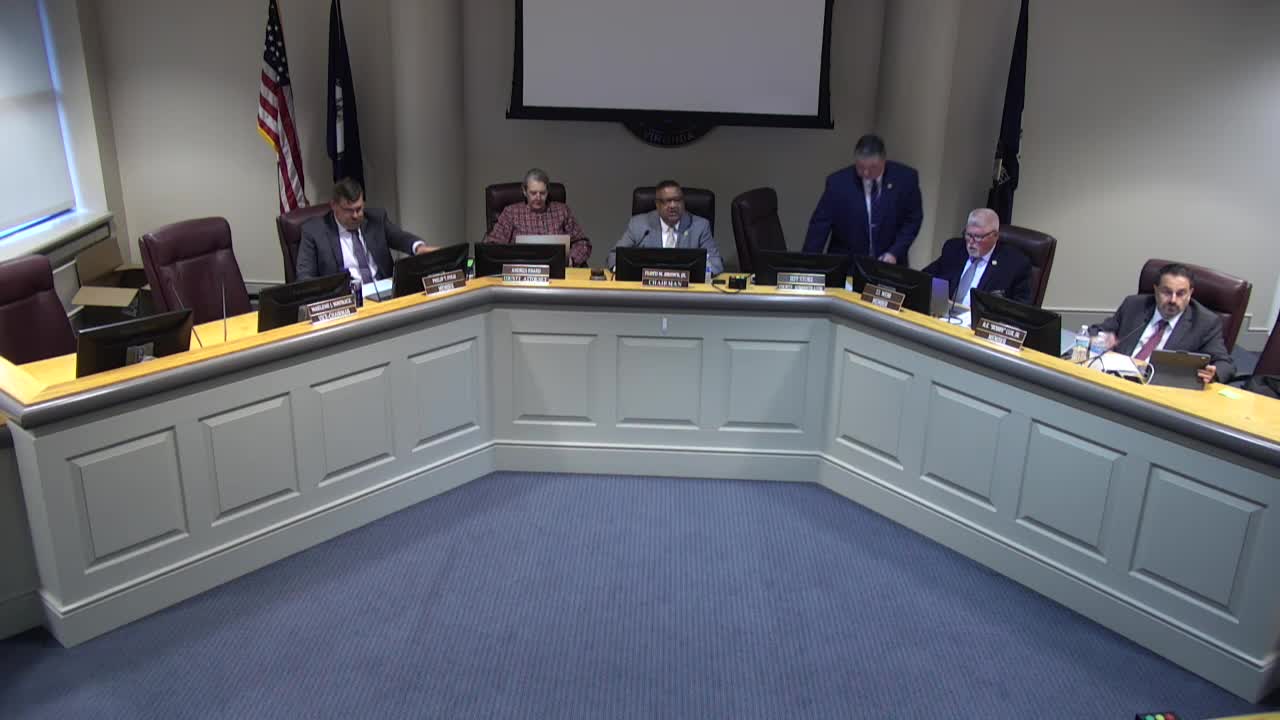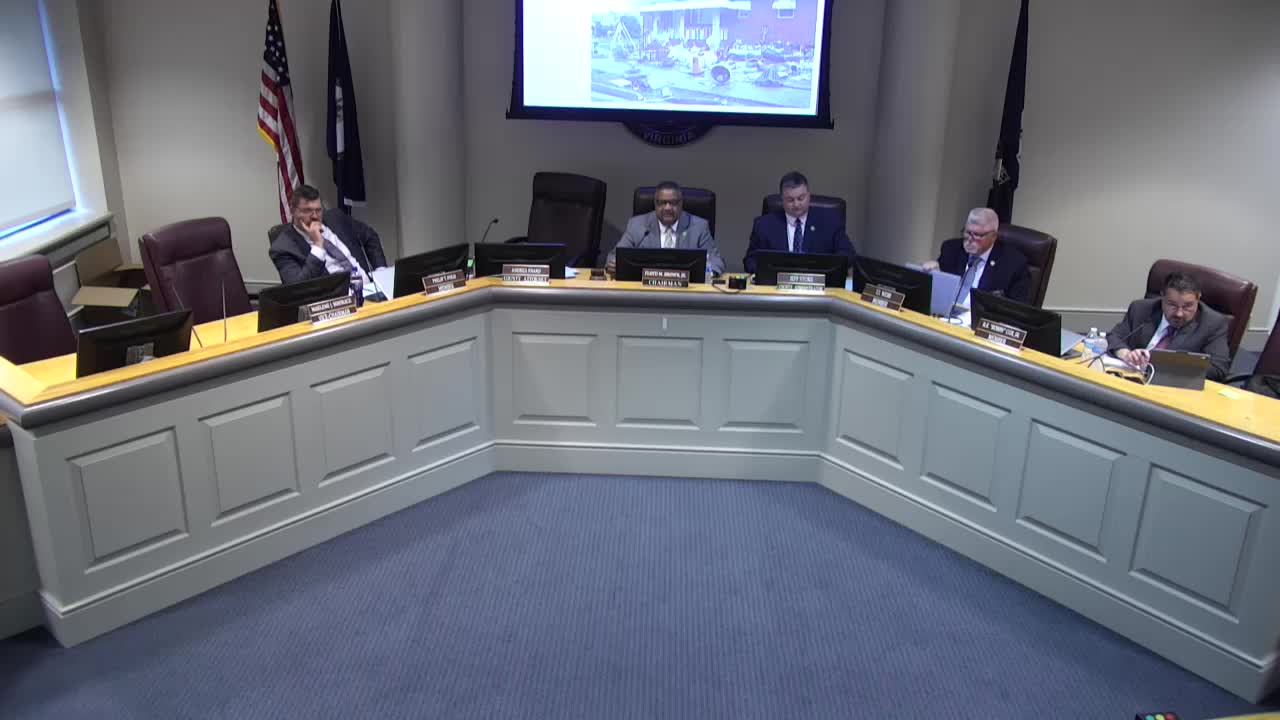Article not found
This article is no longer available. But don't worry—we've gathered other articles that discuss the same topic.

Powell Creek solar-extension request postponed after public comments on decommissioning and bonds

Board approves VDOT six-year plan; telefee funds earmarked for Middle–Jefferson roundabout

Board approves $2.08 million in school carryover spending and categorical transfers

Board delays 'trash and clutter' ordinance after hours of public opposition

